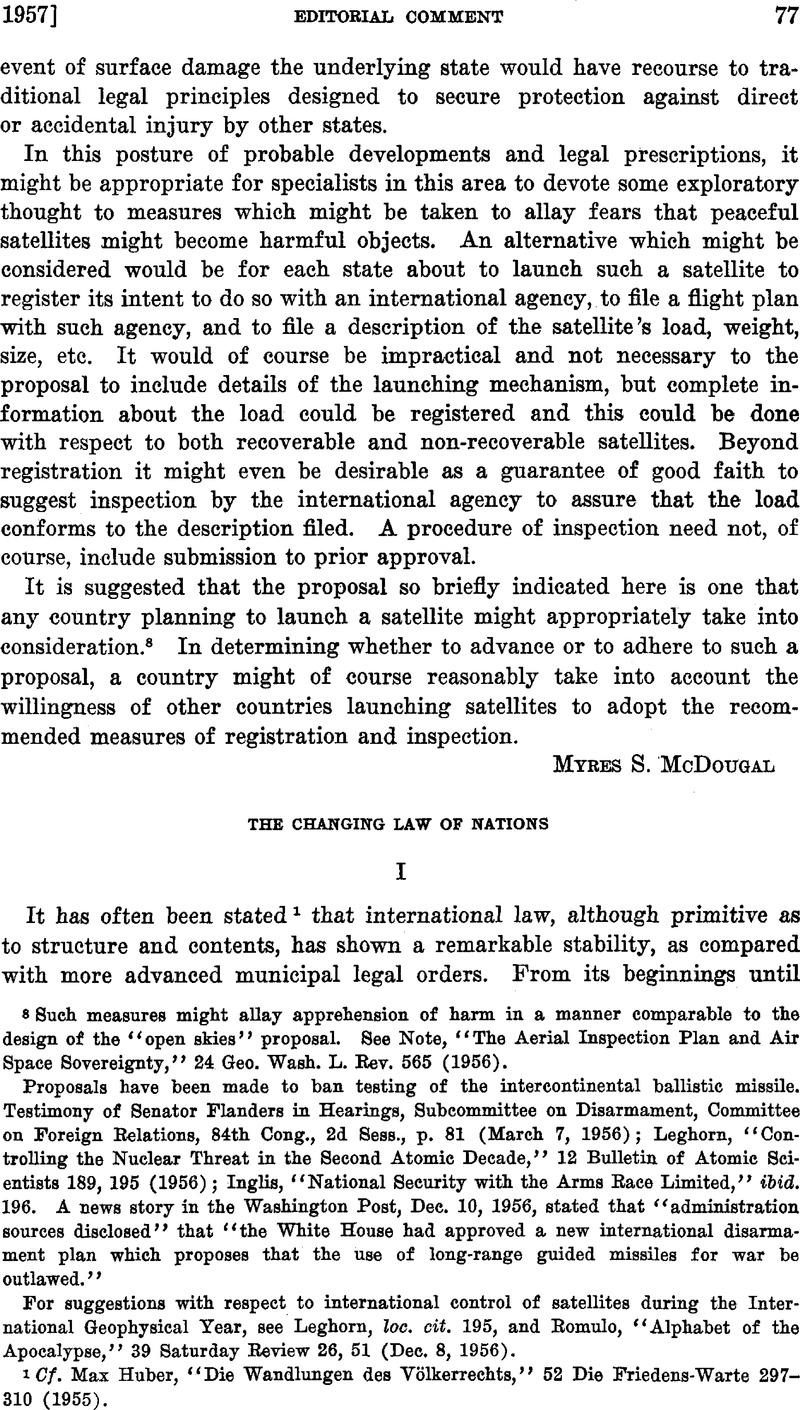Published online by Cambridge University Press: 28 March 2017

1 Cf. Huber, Max, “Die Wandlungen des Völkerrechts,” 52 Die Friedens-Warte 297–310 (1955)Google Scholar.
2 This is the approach of De Visscher, Charles, Théories et Réalités en Droit International Public (Paris, 1953)Google Scholar.
3 See this writer's lectures in French, “La Crise et les Transformations du Droit des Gens,” to be published in the Recueil des Cours of the Hague Academy of International Law.
4 See this writer's editorial, “Pluralism of Legal and Value Systems and International Law,” 49 A.J.I.L. 370–376 (1955)Google Scholar.
5 Jenks, C. W., “The Scope of International Law,” 31 British Year Book of International Law (1954) 1–48 Google Scholar (London, 1956).
6 These transformations are dealt with in the article of Friedmann, W., “Some Impacts of Social Organization on International Law,” 50 A.J.I.L. 474–514 (1956)Google Scholar.
7 The strictly legal question has been asked: Who owns the universe? Cf. Jenks, C. W., “International Law and Activities in Space,” 5 Int. and Comp. L. Q. 99–114 (1956)CrossRefGoogle Scholar ; Proceedings, American Society of International Law, 1956, pp. 84–115. See also the attempts to frame principles of a new international law applicable to the realms of space at the International Astronautical Congress, held recently at Rome (New York Times, Sept. 20, 1956, p. 12).
8 Cf., e.g., Lador-Lederer, J. J., “Vom Wasserweg zur internationalen Gemeinschaft,” 53 Die Friedens-Warte 225–244 (1956)Google Scholar.
9 See this writer's editorial, “General International Law and the Law of International Organizations,” 47 A.J.I.L. 456–462 (1953)Google Scholar.
10 See Schiffer, W., The Legal Community of Mankind (New York, 1954)Google Scholar.